
Background information
How well Gemini Live performs in everyday life
by Michelle Brändle
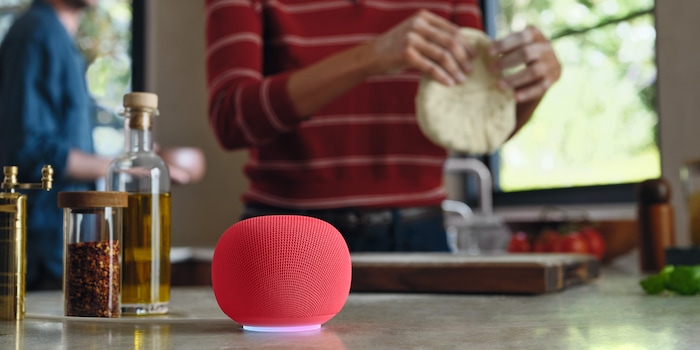
Google is modernising its ageing smart home platform and using its voice AI Gemini as a central control hub in millions of homes.
The fact that Google wants to integrate its LLM voice assistant Gemini into Google Home devices has been known for some time. Now the time has come: the company is starting the rollout on existing devices and has announced details of two new security cameras optimised for Gemini and a smart speaker. The company has also fine-tuned its subscription structure and the Google Home app.
The good news: Google confirmed that Gemini will be available for free on all Google Home-enabled speakers, cameras, smart displays and doorbells from the last decade and will replace the previous Google Assistant. This means you will soon be able to use Gemini on Google's first smart speaker Google Home from 2016.
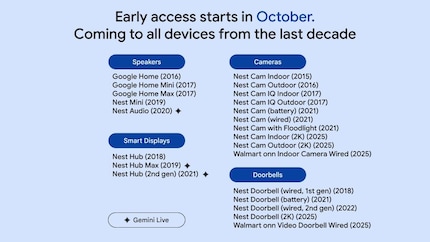
The bad news: The really cool features can only be used with a plan. This costs ten or 20 US dollars respectively.
Early Access for Gemini on Google Home-compatible devices starts on 1 October. Early Access means that unexpected problems may occur during the rollout to millions of devices, which Google intends to iron out in the coming months. To take part in Early Access, you need to sign up for it in the Google Home app settings. You will be notified when the update is ready for you.
Android users may already be familiar with Gemini from their smartphones. Gemini is Google's LLM-based voice chatbot that helps you with brainstorming or research and can even explain what you can see in the live view of your smartphone camera. You can get an impression of this in the article by my colleague Michelle.
With Gemini, you can have conversations that feel almost natural. For example, you can tell the assistant what ingredients you have in the fridge and ask for a recipe. Together with him, you then think about which dish would taste best for the children.
As a smart home assistant, you can speak to Gemini as usual using the trigger «Hey Google». This is suitable for a question or a command. However, if you want to have a real dialogue with the assistant without using the trigger word every time, you can initiate the conversation with «Hey Google, let's chat» - there will certainly be a German equivalent for this. In this chat mode, you can talk freely with Gemini.
Things get even more interesting when you use Gemini not just as a conversation partner, but as the brain of your smart home. Instead of fixed, rigid voice commands such as «Hey Google, switch on the light in the living room», your smart speakers now understand natural speech. When talking to you, the assistant can interpret chains of commands, such as switching on all the lights except in the bathroom and locking the front door.
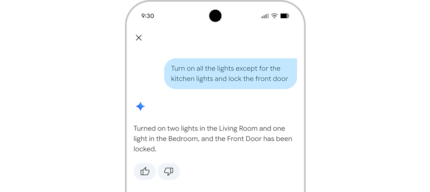
New automations can also be created in this way - including one-off routines for a specific occasion. For example, you can take a spontaneous nap and instruct Gemini to wake you up at 5 pm with soft music and gentle lighting. It should also be possible to change the commands and automations later - not only in the Google Home app, but also in conversation with the assistant.
In addition, you can ask Gemini about past events and thus enable ultimate monitoring. You could find out how long the TV has been on during the day and when which lights were switched on by simply asking. The event history is also available in the app as a written log.
Google has also significantly revised the app. It should be significantly faster and more stable. Google promises improvements in loading times, stability and battery utilisation. The app structure has also been streamlined: all content should be found intuitively in one of the three tabs Home, Activities and Automations.
Google is also transferring the management of your Nest cameras to the Google app. Google aims to build an app «for everything».
With the Nest cameras, the home brain goes one step further. The AI no longer just recognises pre-programmed patterns such as people, animals or parcels. Now, a complete image analysis is carried out with AI support. It allows Gemini to describe what can be seen in the camera feed, such as the colours and patterns of the clothes a person is wearing and what the person is currently doing. Push notifications could therefore contain more helpful information.
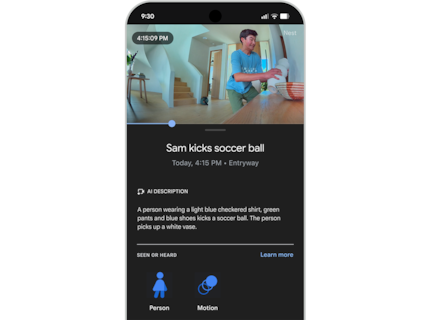
These descriptions are also available in the event history. According to Google, you can ask Gemini, for example, why your lettuce heads have disappeared from the garden or what happened on your doorstep in the afternoon. Gemini knows that a rabbit was hungry for salad at 9.05 am and that daughter Marlene played in the sandpit for 20 minutes.
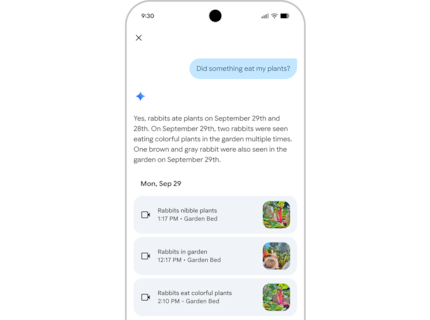
In addition to this event history, which can be called up by voice command, you can display a report on what happened during the day in the Google Home app. A postman has delivered a parcel. A visitor rang the doorbell. The gardener started work in the morning. You know about everything.
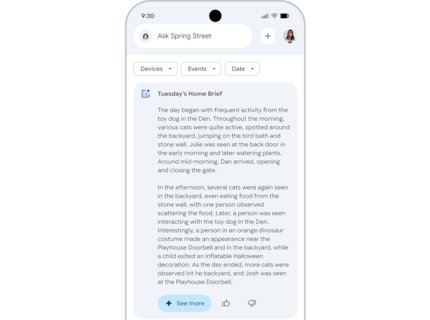
However, a plan is required for many of the functions presented. Google is therefore introducing a new, two-tier subscription model with «Google Home Premium». It replaces the previous «Nest Aware» plan, which only included functions for security cameras. «Google Home Premium», on the other hand, includes all new smart home functions.
The Standard level starts at ten US dollars per month and includes a 30-day event history of your video cameras, an activity history of all devices in the app and the creation of automations using Gemini. However, AI notifications, AI descriptions, the home report and a 60-day video history are only available for USD 20 per month.
Without a plan, the performance of your cameras and the entire Google Home system is much more limited.
Google has now announced details of new smart home devices. Firstly, two new wired cameras are now available on the European market: the Nest Cam Outdoor (2nd generation) for 150 US dollars and the Nest Cam Indoor (3rd generation) for 100 US dollars.
They come with 2K resolution and HDR. The predecessor models only offer full HD. According to Google, the resolution is the best compromise for image detail, zoom options, AI performance and reliability in relation to storage space. However, it is lower than the 4K that is now frequently used by the competition. The field of view has also been enlarged and allows a wider view at 150 degrees instead of 130 degrees.
In spring 2026, a new smart speaker will be launched on the market for around 100 US dollars. It supports 360-degree audio and can be paired with other speakers to form a stereo pair.
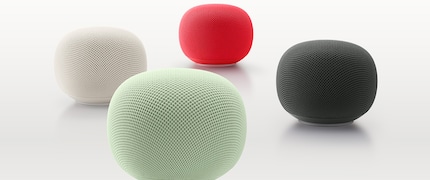
Google also announced a partnership with Walmart and, in the future, with other third-party vendors who will manufacture corresponding Google Home-compatible hardware.
Feels just as comfortable in front of a gaming PC as she does in a hammock in the garden. Likes the Roman Empire, container ships and science fiction books. Focuses mostly on unearthing news stories about IT and smart products.
From the latest iPhone to the return of 80s fashion. The editorial team will help you make sense of it all.
Show all